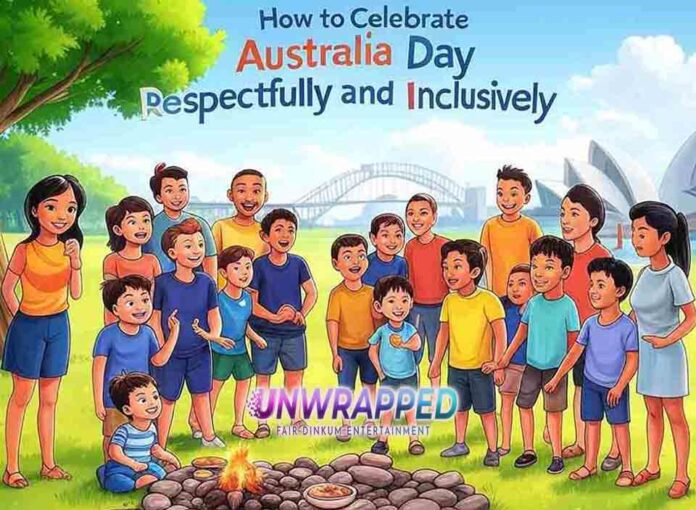Australia Day, observed annually on January 26th, holds different meanings for different people. While it’s a day of celebration for many, marking the arrival of the First Fleet in 1788, it also signifies a time of mourning for many Aboriginal and Torres Strait Islander peoples. Recognizing these diverse perspectives is essential for celebrating the day respectfully and inclusively.
This guide will help you understand the importance of an inclusive Australia Day and provide actionable tips for celebrating in a way that respects all Australians and their histories.
Why Inclusivity Matters on Australia Day
1. Acknowledging the Past
For Indigenous Australians, January 26th marks the beginning of colonization, bringing dispossession, displacement, and intergenerational trauma. This history deserves recognition alongside celebration.
2. Celebrating Diversity
Australia is a multicultural nation with a rich tapestry of cultures. Inclusive celebrations honor the contributions of all communities, from First Nations peoples to migrants.
3. Fostering Unity
Creating a respectful and inclusive environment encourages unity and mutual understanding, ensuring everyone feels valued.
Tips for Celebrating Australia Day Respectfully
1. Educate Yourself on Indigenous History
- Learn about Australia’s First Nations peoples, their cultures, and the impact of colonization.
- Watch documentaries, read books, or explore resources like AIATSIS or Reconciliation Australia.
2. Attend Indigenous-Led Events
- Support and participate in events like the Yabun Festival in Sydney, which celebrates Aboriginal and Torres Strait Islander cultures.
- These events provide an opportunity to learn through music, art, storytelling, and panel discussions.
- Learn More: Visit Yabun Festival
3. Begin the Day with a Welcome to Country or Acknowledgment of Country
- If hosting an event, invite an Indigenous Elder to deliver a Welcome to Country.
- Alternatively, acknowledge the traditional custodians of the land where your event is held.
4. Support Indigenous Businesses and Artists
- Purchase goods from Aboriginal-owned businesses or artwork from Indigenous artists.
- Explore platforms like Blak Markets or First Nations Foundation.
5. Reflect on the Day’s Meaning
- Spend time reflecting on what Australia Day means to you and others.
- Consider participating in activities like community discussions or Reconciliation Walks to promote understanding.
Inclusive Activities for Australia Day
1. Host a Multicultural Potluck
- Invite friends and family to bring dishes representing their cultural heritage.
- Celebrate Australia’s diversity through food, music, and shared stories.
2. Volunteer for a Cause
- Dedicate the day to giving back by volunteering with organizations that support Indigenous communities or other social causes.
- Explore opportunities through platforms like Volunteering Australia.
3. Participate in Reconciliation Walks
- Join a local Reconciliation Walk to learn about Indigenous cultures and show your commitment to unity.
- Events like these are often organized by local councils or Indigenous organizations.
4. Explore Australian History
- Visit museums, cultural centers, or historical landmarks that highlight Indigenous history and Australia’s journey.
- Recommended locations:
- National Museum of Australia: Explore Exhibits
- Australian Museum: Learn More
- Recommended locations:
5. Plant Native Trees
- Organize a tree-planting event using native Australian species to honor the environment and Indigenous land management practices.
Conversations Around Changing the Date
The movement to change the date of Australia Day to a less divisive date has gained momentum in recent years. Advocates argue that a new date would allow all Australians to celebrate without ignoring the painful history associated with January 26th.
- Alternative Dates:
- January 1st: Marks Federation Day in 1901.
- May 27th: Anniversary of the 1967 Referendum, a milestone for Indigenous rights.
How to Approach the Topic
- Be open to listening and understanding diverse perspectives.
- Discuss the potential benefits of changing the date without dismissing others’ experiences or opinions.
Inclusive Australia Day Events Across the Nation
1. Yabun Festival (Sydney, NSW)
- A celebration of Aboriginal and Torres Strait Islander culture featuring music, art, and discussion panels.
- Learn More: Visit Yabun Festival
2. Tandanya Cultural Events (Adelaide, SA)
- Workshops, storytelling, and exhibitions at Australia’s oldest Indigenous-owned and operated cultural institute.
- Learn More: Visit Tandanya
3. National Sorry Day Events (Various Locations)
- Events honoring the Stolen Generations and promoting healing and reconciliation.
- Learn More: Visit Reconciliation Australia
Dos and Don’ts for Celebrating Australia Day Respectfully
Dos
- Do acknowledge the day’s significance for all Australians.
- Do include diverse voices and perspectives in your celebrations.
- Do educate yourself and others about Indigenous cultures and histories.
Don’ts
- Don’t dismiss the feelings of those who view January 26th as a day of mourning.
- Don’t appropriate Indigenous symbols or art without permission or understanding.
- Don’t ignore opportunities to learn and reflect on Australia’s history.
Call-to-Action
This Australia Day, choose to celebrate with respect and inclusivity. From attending Indigenous-led events to reflecting on the day’s meaning, there are countless ways to make your celebrations meaningful for everyone. Share this guide with your community to inspire thoughtful discussions and inclusive actions.
External Resources
- AIATSIS: Learn About Indigenous Australia
- Reconciliation Australia: Resources for Reflection
- Blak Markets: Support Indigenous Businesses
- National Museum of Australia: Visit Exhibits
Memorable Conclusion
Australia Day offers an opportunity to celebrate the nation’s achievements while acknowledging its complex history. By choosing respect, inclusivity, and understanding, we can create a day that unites rather than divides. Let this year’s celebration be a step toward reconciliation, recognition, and pride in Australia’s diversity and shared future.
See Also: Is Food Cheaper in Australia or the UK?











